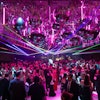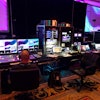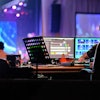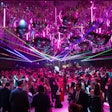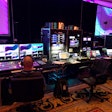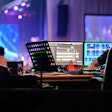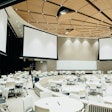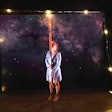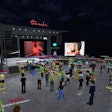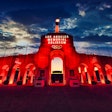1. Give specs upfront
When shopping for an audio company, having exact specs of your event's requirements can save money. "I always ask for a band technical rider and a stage plot. It helps me put together a more concise bid," says Mary Cesar of ACE Live Sound. Technical riders detail exactly what equipment the band requires, and a stage plot shows where performers are situated onstage, so everything can be positioned effectively. Without these specifics, a last-minute search for a certain microphone or speaker can cost extra. And get price quotes for all production.phpects—sound, lighting, staging—before your budget meeting. "Sometimes [planners] do it backwards. They say, 'Okay, we have $500 for sound,' when in actuality, the event they're doing [costs] $2,500 to $3,000," Cesar says.
2. Know what you're paying for
Audio companies sometimes pad prices with lots of backup equipment—extra microphones, equipment racks or speakers—that often goes unused. "Look for fluff or things you didn't ask for," says Kurt Johnson of Concept X. "Know what every single item in the price quote does."
3. Know the venue's capabilities
Big events, especially concerts, require more power than what comes out of a wall plug. "Ask your venue if there's an additional charge to tap into the main power source," Cesar says. "Sometimes planners will book a room, get a rate, and then find out it's an extra $1,500 to $2,000 to tap in." Also, a venue might require using an in-house (and possibly more expensive) electrician to tap into the main power. Similarly, don't assume the venue's sound system can handle your event. Many nightclubs offer state-of-the-art audio systems—but they're intended for prerecorded music. A live band will require special equipment and reconfiguration of the system. Likewise, a hotel ballroom typically can't handle more than a speech at a podium without extra equipment.
4. Choose dead rooms
If sound is critical to your event, choose venues built with acoustics in mind. "Dead" rooms absorb sound with heavy carpet and fabric-covered walls. Rooms with mostly hard surfaces like marble, granite and glass are called "live" rooms. "A live room has more reflections of sound. Anywhere you can get extra sound absorbing—heavy rugs, drapery, backdrops-makes any room better," says Bill Danilczyk of E.S.P. New York. And don't sacrifice sound quality for aesthetics. All-white raw spaces have a clean effect, but the look can hurt sound quality. "A lot of planners want white speakers, and it's just not practical," Johnson says. Not to mention costly. White speakers have lower quality and cost more to rent.
5. Watch labor costs
Be sure to ask how your sound company bills for their workers. "Some companies operate from 9 to 5 and then anything after 5 is overtime. It doesn't spell out that way in their contract, but that's how they make their numbers," says one sound exec. Ask the company whether it bills eight hours from standard business hours 9 AM to 5 PM) or from the time they load in to the time they load out.
—Suzanne Ito
When shopping for an audio company, having exact specs of your event's requirements can save money. "I always ask for a band technical rider and a stage plot. It helps me put together a more concise bid," says Mary Cesar of ACE Live Sound. Technical riders detail exactly what equipment the band requires, and a stage plot shows where performers are situated onstage, so everything can be positioned effectively. Without these specifics, a last-minute search for a certain microphone or speaker can cost extra. And get price quotes for all production.phpects—sound, lighting, staging—before your budget meeting. "Sometimes [planners] do it backwards. They say, 'Okay, we have $500 for sound,' when in actuality, the event they're doing [costs] $2,500 to $3,000," Cesar says.
2. Know what you're paying for
Audio companies sometimes pad prices with lots of backup equipment—extra microphones, equipment racks or speakers—that often goes unused. "Look for fluff or things you didn't ask for," says Kurt Johnson of Concept X. "Know what every single item in the price quote does."
3. Know the venue's capabilities
Big events, especially concerts, require more power than what comes out of a wall plug. "Ask your venue if there's an additional charge to tap into the main power source," Cesar says. "Sometimes planners will book a room, get a rate, and then find out it's an extra $1,500 to $2,000 to tap in." Also, a venue might require using an in-house (and possibly more expensive) electrician to tap into the main power. Similarly, don't assume the venue's sound system can handle your event. Many nightclubs offer state-of-the-art audio systems—but they're intended for prerecorded music. A live band will require special equipment and reconfiguration of the system. Likewise, a hotel ballroom typically can't handle more than a speech at a podium without extra equipment.
4. Choose dead rooms
If sound is critical to your event, choose venues built with acoustics in mind. "Dead" rooms absorb sound with heavy carpet and fabric-covered walls. Rooms with mostly hard surfaces like marble, granite and glass are called "live" rooms. "A live room has more reflections of sound. Anywhere you can get extra sound absorbing—heavy rugs, drapery, backdrops-makes any room better," says Bill Danilczyk of E.S.P. New York. And don't sacrifice sound quality for aesthetics. All-white raw spaces have a clean effect, but the look can hurt sound quality. "A lot of planners want white speakers, and it's just not practical," Johnson says. Not to mention costly. White speakers have lower quality and cost more to rent.
5. Watch labor costs
Be sure to ask how your sound company bills for their workers. "Some companies operate from 9 to 5 and then anything after 5 is overtime. It doesn't spell out that way in their contract, but that's how they make their numbers," says one sound exec. Ask the company whether it bills eight hours from standard business hours 9 AM to 5 PM) or from the time they load in to the time they load out.
—Suzanne Ito

